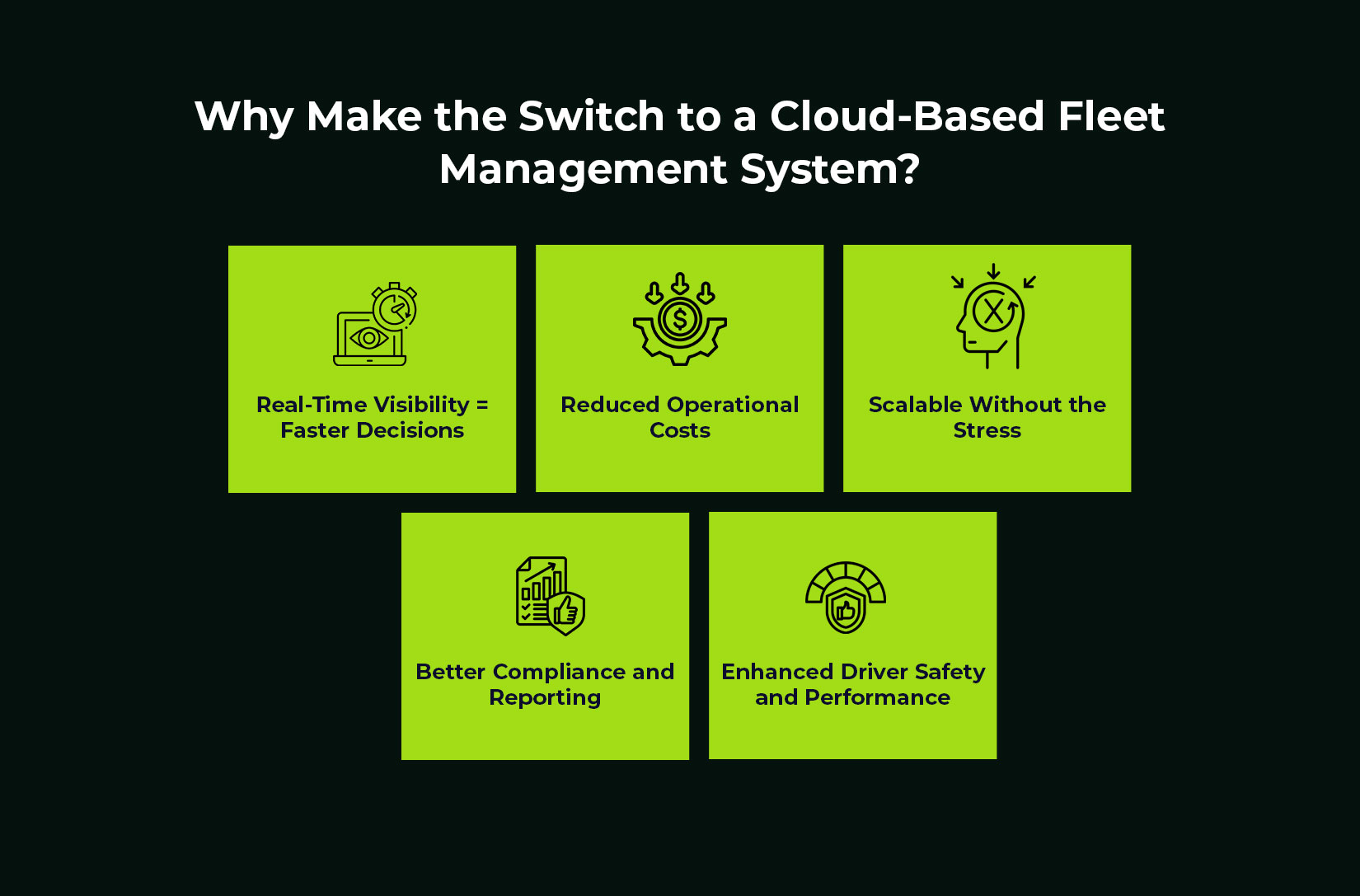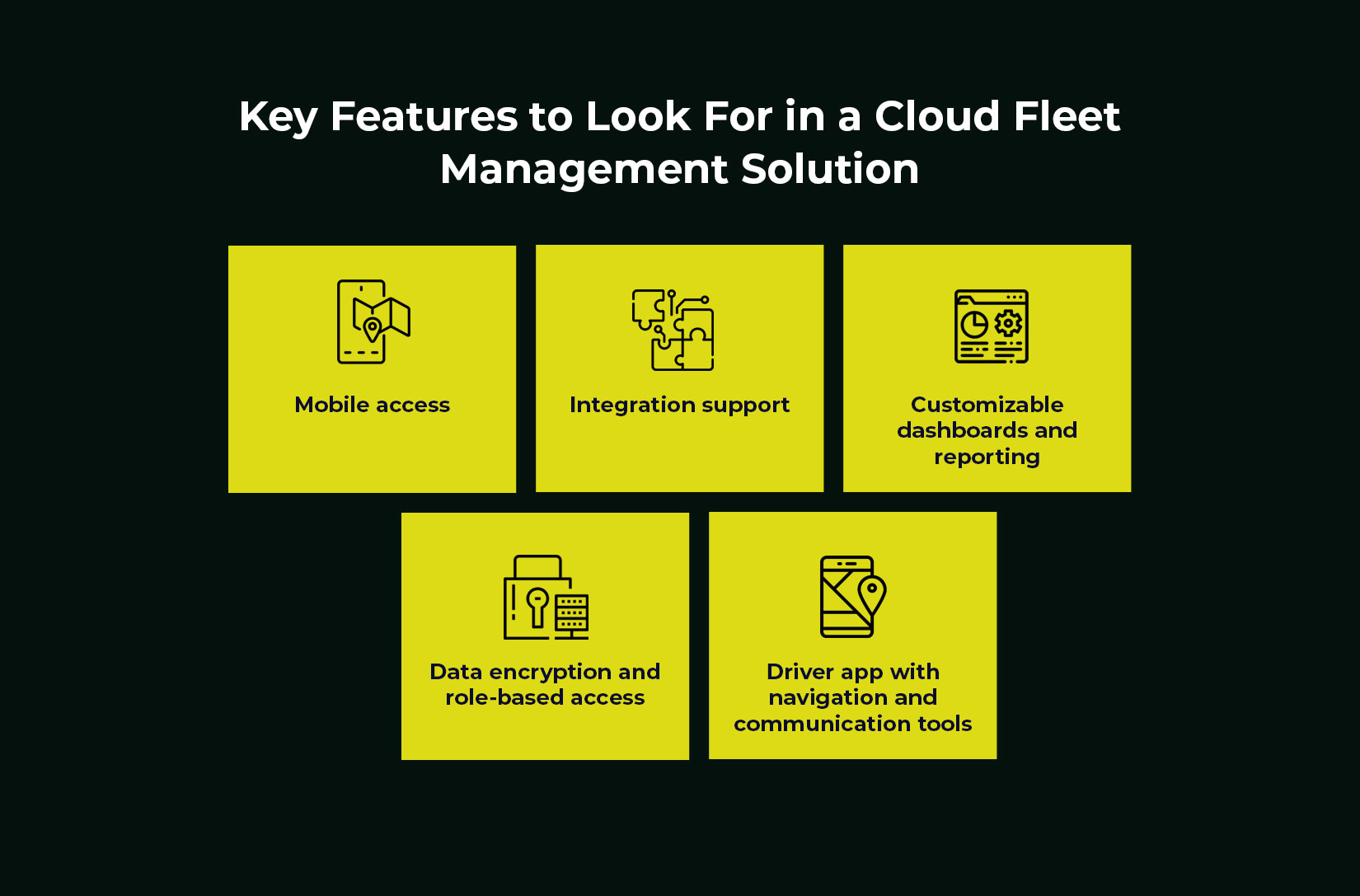
From Manual to Magical: Upgrading to Cloud Fleet Management Software
In today’s highly aggressive logistics environment, managing a fleet manually is more difficult than ever before. The need for real-time tracking, predictive maintenance and data-driven decisions has become very crucial. Here, the cloud fleet management system comes into play. A modern day logistics game changer that is transforming the way businesses monitor and manage vehicles.
What is Cloud Fleet Management System?
A cloud fleet management system is a centralized, internet-based platform. It allows fleet managers to access, analyze and act on the fleet data from anywhere at anytime. Unlike on-premise systems, a cloud based platform doesn’t require costly infrastructure or complex installations.
The software provides the following things:
– GPS tracking for live vehicle updates
– Driver behavior monitoring (harsh braking, speeding, idling)
– Automated maintenance alerts
– Fuel usage analytics
– Electronic logs and compliance tools
This is not just a software, its the fleet’s command center in the cloud.
Why Make the Switch to a Cloud-Based Fleet Management System?

Upgrading to a cloud based fleet management system is not just a technology upgrade, its a strategic move:
1. Real-Time Visibility = Faster Decisions:
With a cloud software, you will be able to get live updates on vehicle location, delivery status and driver performance. Dispatchers get empowered with the real-time visibility to reroute on the go, resolve issues quickly and keep customers informed. A report by Verizon Connect says that, companies using cloud fleet management system reported 23% improvement in delivery time.
2. Reduced Operational Costs:
Cloud solutions can help trim down unnecessary expenses. It does with smart fuel analytics, maintenance scheduling and route optimization. This helps in reducing surprise breakdowns or inefficient detours. Companies were able to see an average 15% reduction in fuel costs within the first year after switching to the cloud fleet management software.
3. Scalable Without the Stress:
A cloud management platform will scale with the business, whether 10 or 10,000 vehicles are being managed. The IT system should not get overhaul every time a a vehicle or driver is being added to the system.
4. Better Compliance and Reporting:
Its not an option to follow compliance, its mandatory by law. The software helps in simplifying Hours of Service (HOS) tracking, electronic logging (ELD) and driver reports. Thereby, helping fleets avoids fines and stay audit-ready. It is reported that fleets using cloud platforms report a 40% reduction in compliance related violations in 2024.
5. Enhanced Driver Safety and Performance:
Managers can actively promote safe driving behavior with real-time driver scorecards, coaching alerts and incident tracking. Thereby, reducing accidents and insurance premiums.
Key Features to Look For in a Cloud Fleet Management Solution

Its important to look for the features that deliver both functionality and flexibility:
1. Mobile Access:
A mobile friendly dashboard ensures tracking and management of fleet on the go. Remote management can help the you run the fleet whether you are in office or not.
2. Integration Support:
The fleet software should sync perfectly with other ERP, CRM, maintenance systems. Seamless integration helps eliminate data silos and improves operational flow across departments.
3. Customizable Dashboards and Reporting:
Platform that allow the user tailor it according to their needs. It should focus on what matters the most to the business as one-size-fits-all reporting wont work very well.
4. Data Encryption and Roll-Based Access:
Security is something which is and should not be non-negotiable. It is important to ensure that the system is using robust encryption and allows you to control the accesses of everyone.
5. Driver App with Navigation and Communication Tools:
It is necessary to have a dedicated driver app for the drivers. Empowering them with tools for route optimization, job-updates and real-time communication, all in one app will be very beneficial.
It is important to understand, that the software should be chosen which aligns with the operational goals and not just the current setup.
Industries Benefiting from Cloud Fleet Management Systems
1. Field Services:
From pest control to plumbing, mobile teams are made more productive, and minimize falling idle. This is done with real-time dispatching and route optimization.
2. Retail & E-commerce:
With short windows between deliveries and high customer expectations, cloud-based systems assist in assuring fast, accurate, and trackable deliveries.
3. Construction:
Effectively tracking vehicles and heavy equipment, and managing maintenance schedules are made efficient while providing increased uptime and reducing costs.
4. Healthcare Logistics:
Deliveries that are time-sensitive, and often with temperature regulation, often require real-time visibility that the cloud can facilitate efficiently.
The flexibility of cloud based fleet management system allows these industries to streamline operations. Also, to improve service levels and scale with confidence, no matter the fleet size or complexity.
Common Concerns: Busting a Few Myths
Some fleet managers hesitate to make the move, because of a few persistent myths:
1. “Its too expensive”
Subscription based pricing, means you end up paying for what you use. Also, the ROI will outweigh the costs within months.
2. “Its hard to train drivers”
Most modern platforms are built with user-friendly UIs and mobile-first design. this makes driver onboarding very quick and painless.
3. “Our operations are too complex”
If the operations are too complex, manual methods will definitely fail. That’s why automation is needed, as complexity will always thrive on inefficiency.
The Future is Cloudy, But in a Good Way
With advancements in AI, IoT, and 5G continuing to pick up steam, the evolution of cloud fleet management software is just beginning. Predictive analytics, autonomous vehicle capabilities, and drone delivery coordination are just getting tested in cloud environments.
What does this mean for you? A future-proof platform that goes with the flow of the industry’s evolution.
In fact, Gartner predicts that, by 2026, 75% of fleet operations will use cloud-based platforms for planning and managing.
Conclusion
Are you still relying on spreadsheets, whiteboards, and crossed fingers to manage your fleet? It’s time to move on. A cloud fleet management system doesn’t just eliminate manual processes, it makes them obsolete.
With improved visibility and reduced costs, to safer driving and easier scalability, the cloud is not a fad- it’s the future of fleet management. So go ahead. Take the leap.
Because in logistics, those who delay adopting technology end up left outside the party. Thus, book a demo with LogiNext Solutions today and get the best cloud fleet software.
63







@LogiNext